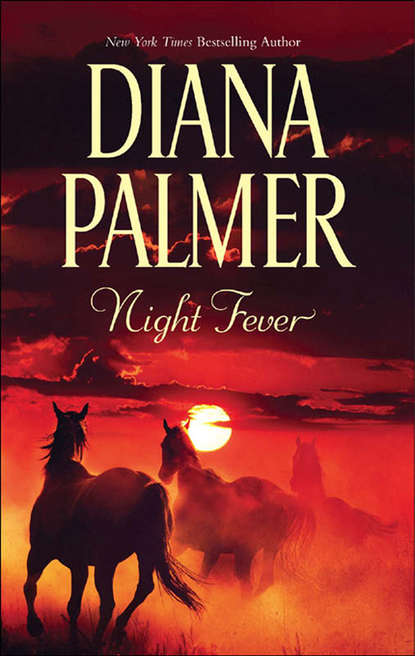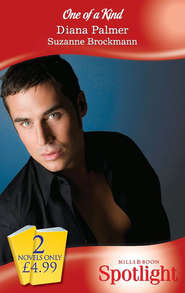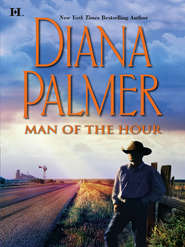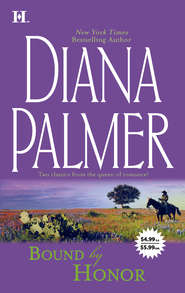По всем вопросам обращайтесь на: info@litportal.ru
(©) 2003-2025.
✖
Night Fever
Автор
Год написания книги
2018
Настройки чтения
Размер шрифта
Высота строк
Поля
On the other hand, that Cullen woman was giving him fits! He only realized how blackly he was scowling when the witness he was cross-examining began to blurt out details he hadn’t even asked for. The poor man had thought the scowl was meant for him, and he wasn’t taking any chances. Kilpatrick interrupted his monologue and asked the questions he needed the answers to before he went back to his seat. The black defense attorney, one J. Lincoln Davis, was laughing helplessly behind some papers. He was older than Kilpatrick—a big man with café au lait skin, dark eyes, and a ready wit. He was one of Curry Station’s richest attorneys, and arguably the best around. He was the only adversary Kilpatrick had been beaten by in recent years.
“Where were you in court?” Davis asked him in a whisper after the jury had retired. “God, you had that poor man tied in knots, and he was your own witness!”
Kilpatrick smiled faintly as he gathered his material into his attaché case. “I drifted off,” he murmured.
“That’s a first. We ought to hang a plaque or something. See you tomorrow.”
He nodded absently. For the first time, he’d lost his concentration in court. And all because of a skinny secretary with a mane of tawny hair.
He should be thinking about her brother. He’d had a long talk with his investigator at lunch, and there were some solid rumors that a drug-related hit was about to go down. Kilpatrick was working on a case involving crack peddling. He had two witnesses, and his first thought was that they might be the targets. The investigator had said that he was fairly certain Clay Cullen was involved somehow with the dealers because of his friendship with the Harrises. If the boy had that much crack on him, was it possible that he was starting to deal it?
Having to prosecute the boy wouldn’t really bother him, but he thought of Rebecca and that did. How would she react to having her brother in jail and knowing that Kilpatrick had put him there? He had to stop thinking like that. Prosecuting criminals was his job. He couldn’t let personal feelings get in the way. He only had a few months to go as district attorney. He had to make them count.
He went back to his office deep in thought. Would the drug dealers risk obvious murder to keep their territory intact? If they started blowing up people in his district, it was going to fall to him to get the goods on the perpetrators and send them away. He scowled, hoping that Rebecca Cullen’s brother wasn’t going to wind up back in his office as part of that fight over drug territory.
Rebecca was going through the motions of working herself. She typed mechanically, doing briefs on the electronic typewriter while Nettie fed precedents for another case into the computer. Nettie was a paralegal, qualified to do legwork for the attorneys as well as secretarial work. Becky envied her, but she couldn’t afford the training that was required for paralegal status, even though it would have meant a salary increase.
She was worried about Granddad. His silence at breakfast had been disturbing. She phoned Mrs. White at lunch and asked the widowed lady to go over to the house and check on him. Mrs. White was always willing to look in on the old gentleman when she was needed. Besides that, she was a retired nurse, and Becky thanked her lucky stars for such a good neighbor.
If only Clay would straighten himself out, she thought. It was enough work trying to raise the boys without having to get them out of jail. Mack adored his older brother. If Clay kept it up, it might be only a matter of time before Mack emulated him.
It was quitting time almost before she realized it. She’d had a busy day, and had been grateful for it. Slow days gave her too much time to think.
She gathered up her purse and worn gray jacket and said her good-byes. The elevator would be full at this time of day, she thought, her heartbeat increasing as she went down the hall. Probably, Mr. Kilpatrick was still upstairs working, anyway.
But he wasn’t. He was in the elevator when she got on it, and he smiled at her. She couldn’t know that he’d timed it exactly, knowing when she got off and hoping that he’d encounter her. Amazing, he thought cynically, how ridiculously he was behaving because of this woman.
She smiled back, feeling her heart drop suddenly, and not from the motion of the elevator.
He got off with her on the ground floor and strode along beside her as if he had nothing better to do.
“Feeling better?” he asked as he held open the door for her on the way to the street.
“Yes, thank you,” she said. She’d never felt so shy and speechless in all her life. She glanced up at him and blushed like a girl.
He liked that telltale sign. It made his spirits lift. “I lost a case today,” he remarked absently. “The jurors thought I was deliberately badgering a witness and threw their decision in the defense’s favor.”
“Were you?”
“Badgering him?” His wide mouth pulled into a reluctant smile. “No. My mind was somewhere else and he got in the way.”
She knew that black glare of his very well. She could certainly understand how a witness might feel under its pressure.
Her hands clutched her purse. “I’m sorry you lost your case.”
He stopped on the sidewalk, towering over her, and looked down at her thoughtfully. He hesitated, wondering what kind of chain reaction he might start if he asked her out. He was crazy, he told himself shortly, to even contemplate such a thing. He couldn’t afford to get involved in her life.
“How did your grandfather take the news?” he asked instead.
She was disappointed. She’d expected a different question, but it was probably just wishful thinking. Why would he want to take out someone like her? She knew she wasn’t his type. Besides, her family would raise the roof—especially Granddad.
She managed a smile. “He took it on the chin,” she said. “We’re a tough lot, we Cullens.”
“Make sure you know where that boy is for the next few days,” he said suddenly. He took her arm and drew her to the wall, wary of passersby. “We’ve had a tip that something is going down in the city—a hit, maybe. We don’t know who or when or how, but we’re pretty sure it’s drug-related. There are two factions fighting for dominance in the distribution sector. The Harris brothers are involved. If they tried to use your brother as a scapegoat, considering the trouble he’s already in...” He left the rest unsaid.
She shivered. “It’s like walking a tightrope,” she said. “I don’t mind looking out for my kin, but I never expected anything like drugs and murder.” She shifted, wrapping her coat closer around her. Her eyes lifted to his, briefly vulnerable. “It’s so hard sometimes,” she whispered.
His breath caught. She made him feel a foot taller when she looked at him that way. “Have you ever had a normal life?”
She smiled. “When I was a little girl, I guess. Not since Mother died. It’s been me and Granddad and the boys.”
“No social life, I guess.”
“Something always came up—a virus, the mumps, chicken pox. Granddad’s heart.” She laughed softly. “There wasn’t exactly a stampede to my door, anyway.” She looked down at her handbag. “It isn’t a bad life. I’m needed. I have a purpose. So many people don’t.”
He felt that way about his work—that it was necessary and fulfilled him. But with the exception of his German shepherd, he felt no real emotions except anger and indignation. No love. His whole work experience was based on moral justice, protection of the masses, and conviction of the guilty. A noble purpose, perhaps, but a lonely calling. And until recently, he hadn’t realized how lonely.
“I suppose,” he murmured absently. His eyes were on her soft mouth. It was a perfect bow, palest pink, with a delicate look that made him ache to feel it under his mouth.
She glanced up, puzzled by his frank stare. “Is it my freckles?” she blurted out.
His thick eyebrows lifted and he met her gaze with a smile. “What?”
“You seemed to be brooding,” she murmured. “I thought maybe my freckles made you uncomfortable. I shouldn’t have them, but there’s just a hint of red in my hair. My grandmother was a flaming redhead.”
“Do you take after your parents?”
“My father is blond,” she said, “and hazel-eyed. We look a lot alike. My mother was small and dark, and none of us favored her.”
“I like freckles,” he said, catching her off guard. He checked his watch. “I’ve got to get home. The Atlanta Symphony is doing Stravinsky tonight. I don’t want to miss it.”
“The Firebird?” Becky asked.
He smiled. “Yes, as a matter of fact. Most people hate it.”
“I love it,” she said. “I’ve got two recordings of it—one avant garde and one traditional. I have to listen to it with earphones. My grandfather likes old Hank Williams records and both my brothers are into hard rock. I’m a throwback.”
“Do you like opera?”
“Madame Butterfly and Turandot and Carmen.” She sighed. “And I love to listen to Placido Domingo and Luciano Pavarotti.”
“I saw Turandot at the Met last year,” he remarked. His dark eyes searched her face warmly. “Do you watch those specials on public television?”
“When I can get the television to myself,” she said. “We only have one, and it’s small.”
“They made a movie of Carmen with Domingo,” he said. “I’ve got it.”
“Is it good?”











